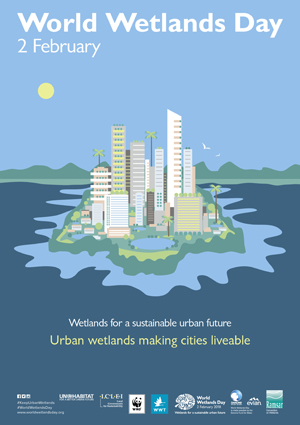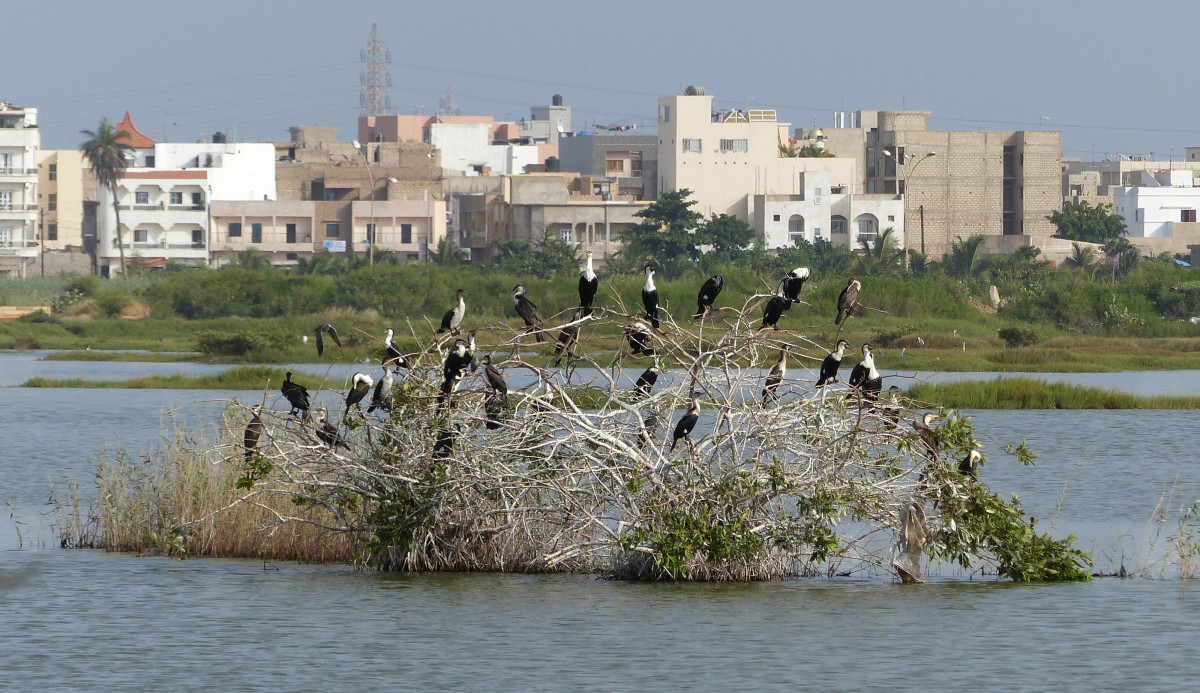World Wetlands Day - Wetlands for a Sustainable Urban Future
Urban wetlands - stepping stones for migratory waterbirds © Jacques Trouvilliez
 Bonn, 1 February 2018 – Although the most important wetlands in terms of their conservation value for waterbirds of the African-Eurasian Flyway – such as the Banc d’Arguin in Mauritania or the Wadden Sea in Europe – are often far removed from large cities, the ones located in or around towns play a vital role in maintaining the chain of sites stretching between the Arctic and the southernmost tip of the African continent.
Bonn, 1 February 2018 – Although the most important wetlands in terms of their conservation value for waterbirds of the African-Eurasian Flyway – such as the Banc d’Arguin in Mauritania or the Wadden Sea in Europe – are often far removed from large cities, the ones located in or around towns play a vital role in maintaining the chain of sites stretching between the Arctic and the southernmost tip of the African continent.
This year’s World Wetlands Day, being celebrated as usual on 2 February, has the theme “wetlands for a sustainable urban future”, emphasizing the benefits that thriving, healthy wetlands bring to improve the quality of life and make cities liveable. By acting as giant sponges, wetlands help prevent flooding by absorbing flood waters; they help fill aquifers for drinking water, filter waste, improve the air quality, promote human health and provide employment and recreational opportunities.
This wealth of urban and peri-urban wetlands at the disposal of human communities and migratory birds is at risk especially in Africa, where demographic pressures and urban development are a cause for concern for the future of these oases of life.
At the meeting held in October 2017of the Working Group on the AEWA Plan of Action for Africa 2019-2027, the participants were able to appreciate at first hand the value of the wetlands of the Dakar Technology Park, which forms part of a vast Important Bird Area (IBA) in Senegal. The Niayes are among the most ornithologically diverse and most threatened sites along the whole coast of Senegal. The Non-Governmental Organization “Nature, Communities, Development” aims to conserve this fragile and densely populated area. It is a good example illustrating just how fitting the theme chosen for World Wetlands Day 2018 is. AEWA is supporting and promotes the sustainable use of wetlands, which are habitat for migratory waterbirds.

Initiated in 1997, World Wetlands Day is held on 2 February each year to mark the date on which the Ramsar Convention on Wetlands of International Importance especially as Waterfowl Habitat was signed in 1971. The aim of the day is to raise awareness of the importance of preserving wetlands.
Last updated on 28 February 2018


